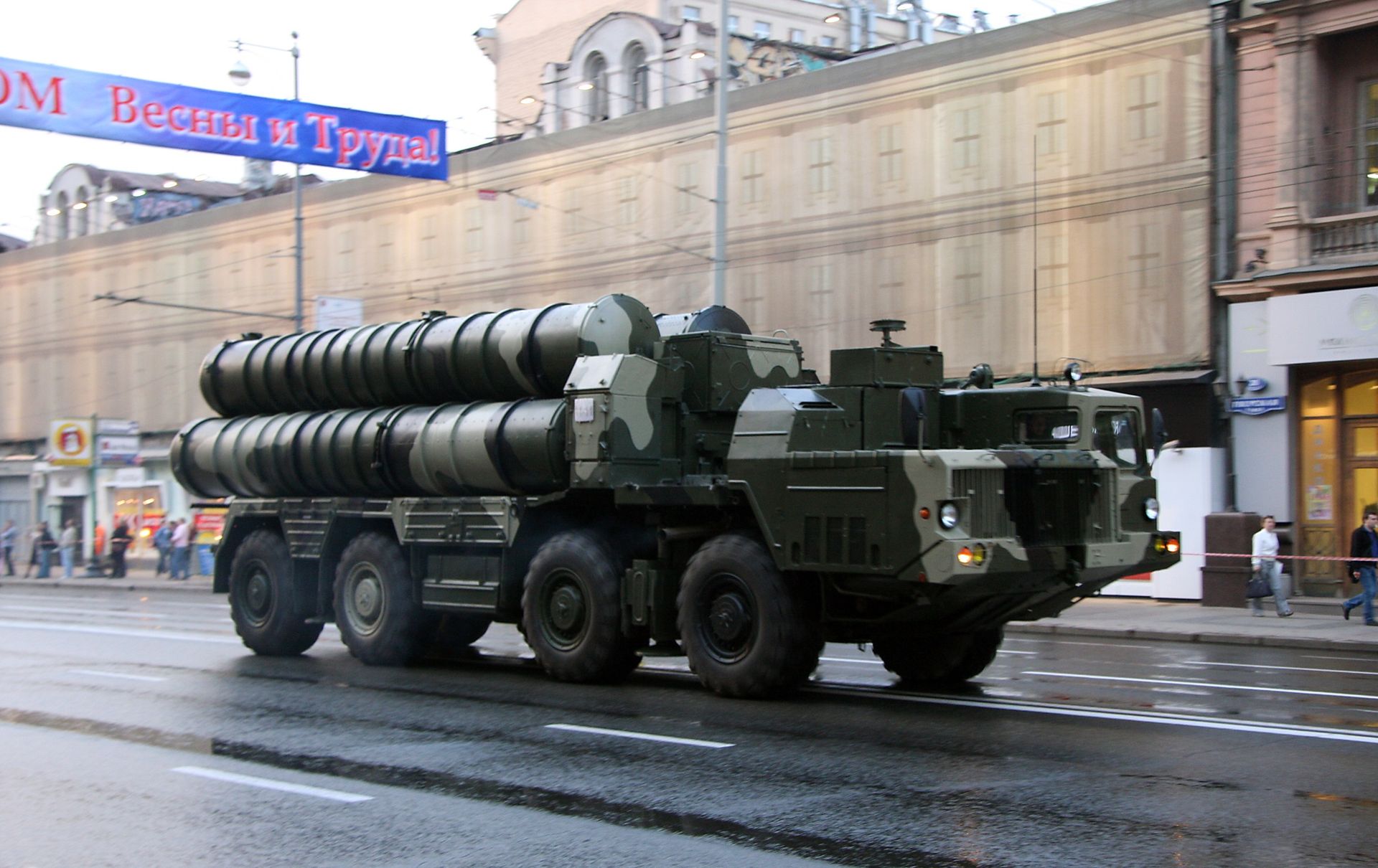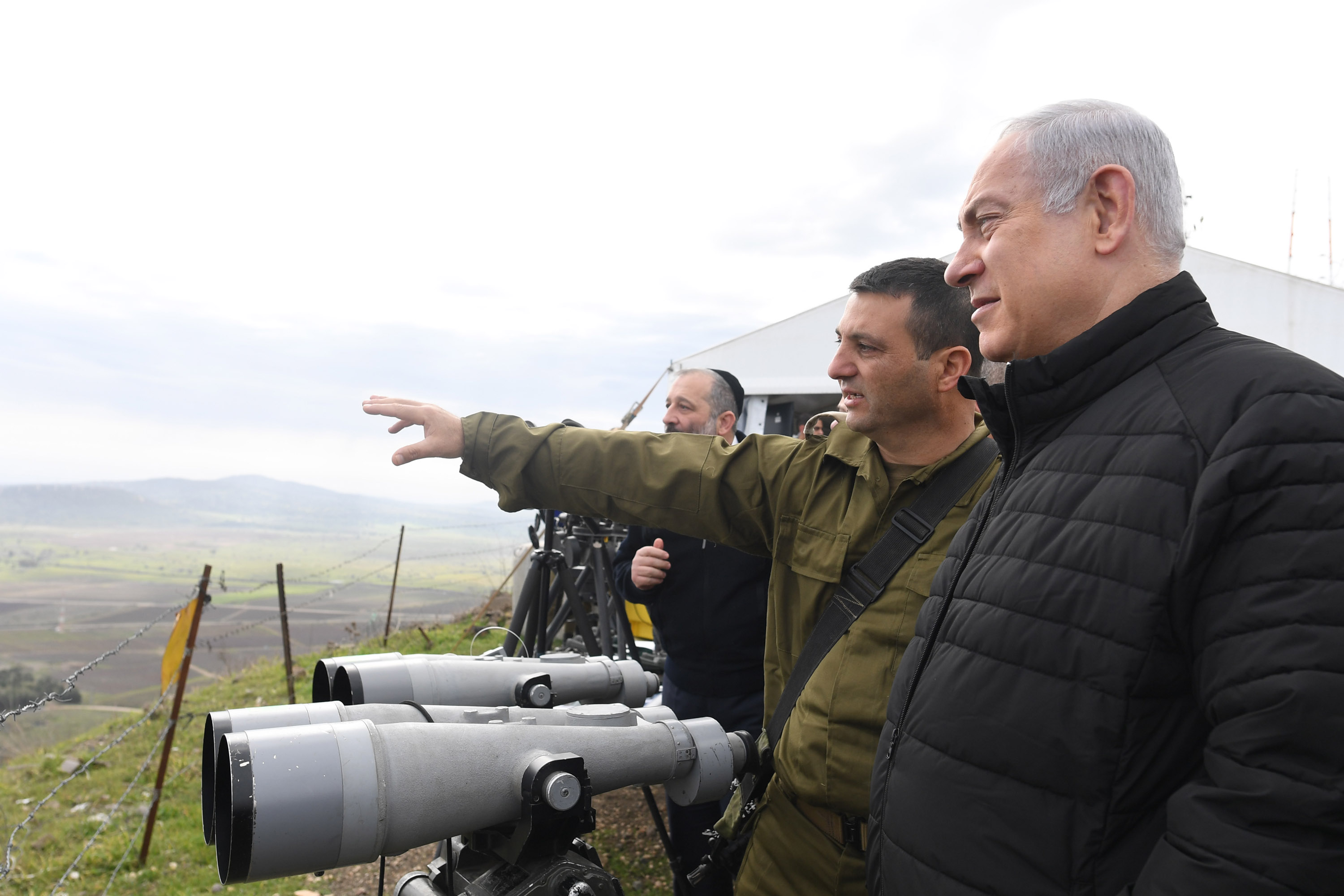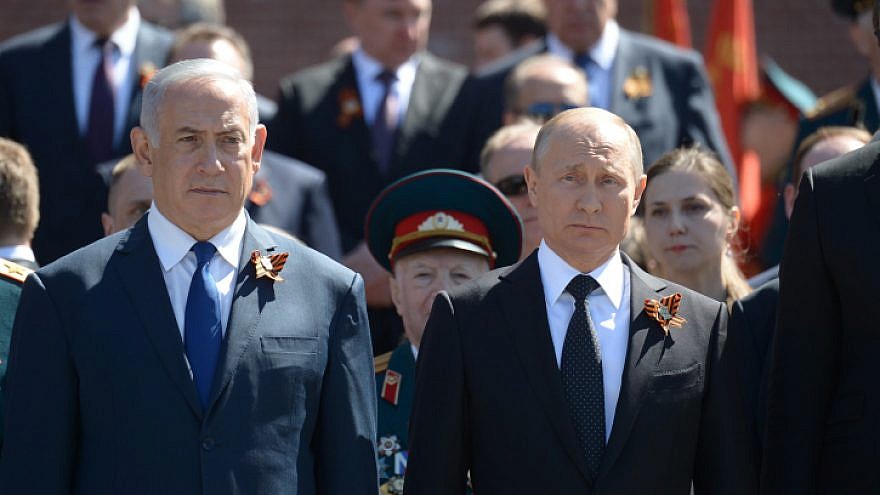The announcement this month that Russia planned to transfer the advance S-300 surface-to-air defense system to Syria in response to the recent accidental downing of a Russian military plane in Syria, raised alarm bells in both Israel and the West. Many saw the announcement by Russia as a clear provocation towards Israel that could hamper Israeli operations in Syria targeting Iran and Hezbollah.
However, in the aftermath of the announcement come a number of questions regarding how serious Russia has been in the rollout of the system, and whether or not the transfer is a legitimate military threat to Israel or just a strong political statement by Moscow. The confusion over this was on full display this week during a visit by a top Russian official to Israel, coupled with news that Israeli Prime Minister Benjamin Netanyahu and Russian President Vladimir Putin plan to meet in the near future.
“Moscow is asserting its dominance in Syria,” she said. “Moscow is trying to leverage this crisis to gain benefits, and this after the IL20 incident was a huge embarrassment and blaming Israel was a clumsy attempt to save face.”
However, Yigal Carmon, president and founder of the Middle East Media Research Institute, contends that by providing Syria with the S-300 system, Russia has revealed itself as Israel’s enemy.
“The Russians, who originally enabled and sponsored the Iranian expansion in Syria as an anti-U.S. measure, will now also protect the Iranians in Syria from Israeli attacks,” writes Carmon. “This constitutes an undeclared act of war against Israel by an enemy, i.e., Russia—since it will not be the Syrians operating the S-300s against Israeli aircraft because they yet face a long learning curve to do this; it will, for an indeterminate time, be Russian officers.”
Nevertheless, a number of unknowns relate to the rollout of the S-300 system with the Syrians.

“There is a myriad of unanswered questions, such as how many S-300s did [Syrian President Bashar] Assad get, what variant of the S-300—S300 is a family of systems, there are several variants; will the Syrians ever be allowed to operate it without Russian supervision—something that seems unlikely. Also, it’s unclear how Assad will pay for it,” said Borshchevskaya.
Additionally, while the S-300 system will complicate U.S. and Israeli operations in Syria, it is not a game-changer, but instead more symbolic.
“No matter how powerful the S-300 is, other elements matter also. If the air-surveillance system is too slow to see an aircraft, for example, it doesn’t matter how strong the S-300 is. If Assad only received one S-300 battery, as has been rumored, the transfer will be merely symbolic,” explained Borshchevskaya.
Russia sends Israel mixed signals
On the diplomatic front, Russia has also sent mixed signals to Israel over its future relationship in recent days.
Earlier in the week, it was announced that Netanyahu and Putin will meet at some point in the near future, although no date has been announced.
At the same time, Russian Deputy Prime Minister Maxim Akimov is on a visit to the Jewish state, where he downplayed the plane incident in his remarks.
“In our very complicated and multi-polar world, any two countries that share a relationship may develop different approaches regarding global challenges, and unfortunately, there are sometimes incidents. … But now we feel the good spirit and strong will [of our] leaders to continue both cooperation in the socioeconomic sphere and political dialogue [regarding] the resolution of … difficult problems in the Middle East,” Akimov said during the opening of the Russian-Israeli Chamber of Commerce.
Borshchevskaya said that Israel has always been in a difficult position vis-à-vis Russia, and Putin’s interests towards Israel were purely pragmatic and self-serving.
“Israel was never equal; Russia is a greater, and more importantly, anti-Western, anti-democratic power that has been on its doorstep officially since its Syria intervention. And, of course, Israel will continue its anti-Iran and anti-Hezbollah operations. I view this visit in that context,” she said.
Israel’s claim to the Golan Heights
Tensions between Israel and Russia also erupted this week over the strategic Golan Heights region, which Israel took from Syria in the 1967 Six-Day War after repeated attacks by the Syrians. In 1981, Israel annexed the region and extended sovereignty over it. However, the international community has rejected Israeli sovereignty in the Golan and calls for the Jewish state to return it to Syria. While Israeli politicians have floated the possibility in the past as part of a larger peace treaty with Syria, both the civil war and recent Iranian aggression in the region have made it clear to Israel that the territory should remain permanently part of Israel.
During a visit to the region this week, Netanyahu emphasized that claim, saying that the Golan Heights will remain part of Israel and that the international community, including Russia, must recognize this claim.

“Israel in the Golan Heights is a guarantee for security. Israel in the Golan Heights is a fact the international community must acknowledge,” said Netanyahu.
“As long as it depends on me, the Golan Heights will stay under Israeli sovereignty. Otherwise, Iran and Hezbollah will be sitting on the shores of the Sea of Galilee,” he said, adding that he plans to discuss this with Putin at their upcoming meeting.
“Russia and Israel have established good relations. President Putin understands the importance I attribute to the Golan Heights and to Israel’s heritage,” he concluded.
Yet Russia dismissed Israeli claims of sovereignty over the strategic Golan Heights region, saying it cannot unilaterally change the status of the region.
“The status of the Golan Heights is determined by the resolutions of the U.N. Security Council,” Russian Foreign Minister Sergei Lavrov was quoted by Russian News Agency Tass in response to Netanyahu. “To change this status bypassing the Security Council, I think, would be a direct violation of these resolutions.”
Whether or not Putin acquiesces to Israel’s claim to the Golan Heights, Israel will likely continue to find itself in a difficult position with Russia.
Nevertheless, Borshchevskaya contends that Israel should still be able to carry out its operations in Syria against Iran and Hezbollah.
“We can expect greater difficulties for Israel going forward—at the very least, in the short to medium term, though Israel should still be able to carry out their operations, even if there is more pressure from Moscow. Neither Russia nor Israel seek a bilateral crisis,” she said.
“This incident once again highlights that the Kremlin tends to view allies as subjects, not equal partners.”


























